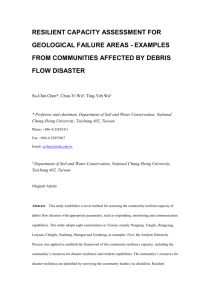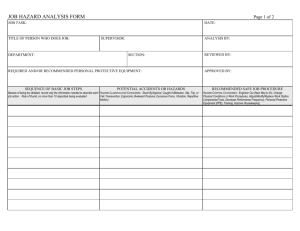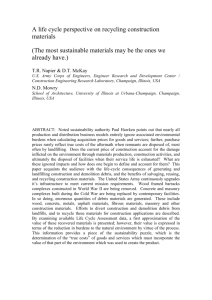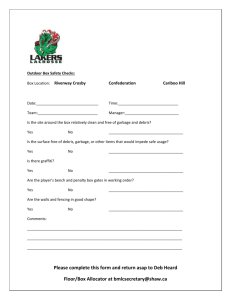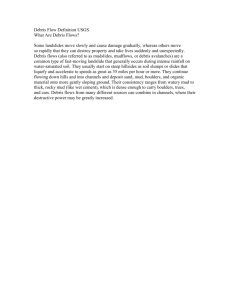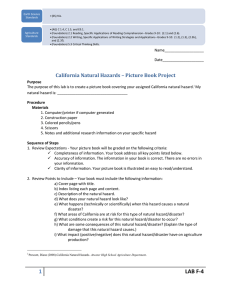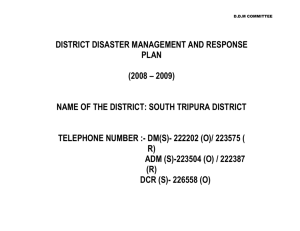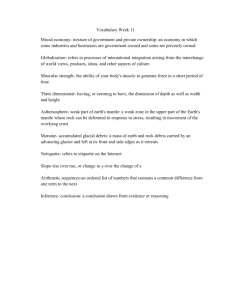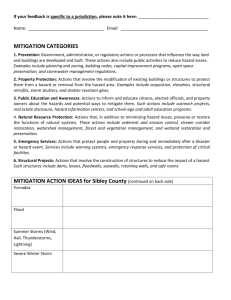2.1 Charlotte Brown
advertisement
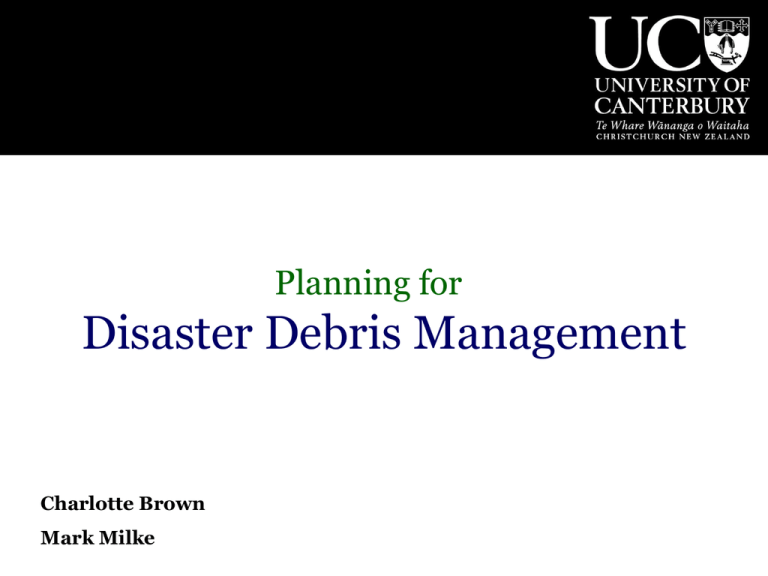
Planning for Disaster Debris Management Charlotte Brown Mark Milke Why is disaster debris management important? • Impact on emergency response • Public & environmental health hazard • Hinder social, economic and environmental recovery Past events Hurricane Katrina • • • • • • Wind and flood damage Toxic sediments Rotting food Illegal dumping Asbestos Absent residents The goal and the priorities? • • • • Fast as possible Minimise public health hazard Minimise environmental effects Coordinate with emergency activities Environmental impact • Standard waste management hierarchy? – Source reduction – Recycling – Waste combustion and landfilling • Hazardous materials Economics • Direct costs – Waste collection & disposal • Indirect costs – Adverse environmental impacts – Business disruption Social impact • • • • Public health hazard Restore order and sense of normalcy Rebuilding Also allow personal grieving Organisational structures •Coordination Legal framework •Waivers and liability Funding •Lowest cost? Debris Management Plans • • • • New – last 15 years internationally How-to guides Country specific Little guidance on decision-making Way forward for NZ • • • • • • Prepare plans Establish contracts and MOU’s Determine roles and responsibilities Establish funding mechanisms Assess environmental impacts Waste management strategies www.disasterwaste.org Thank you
